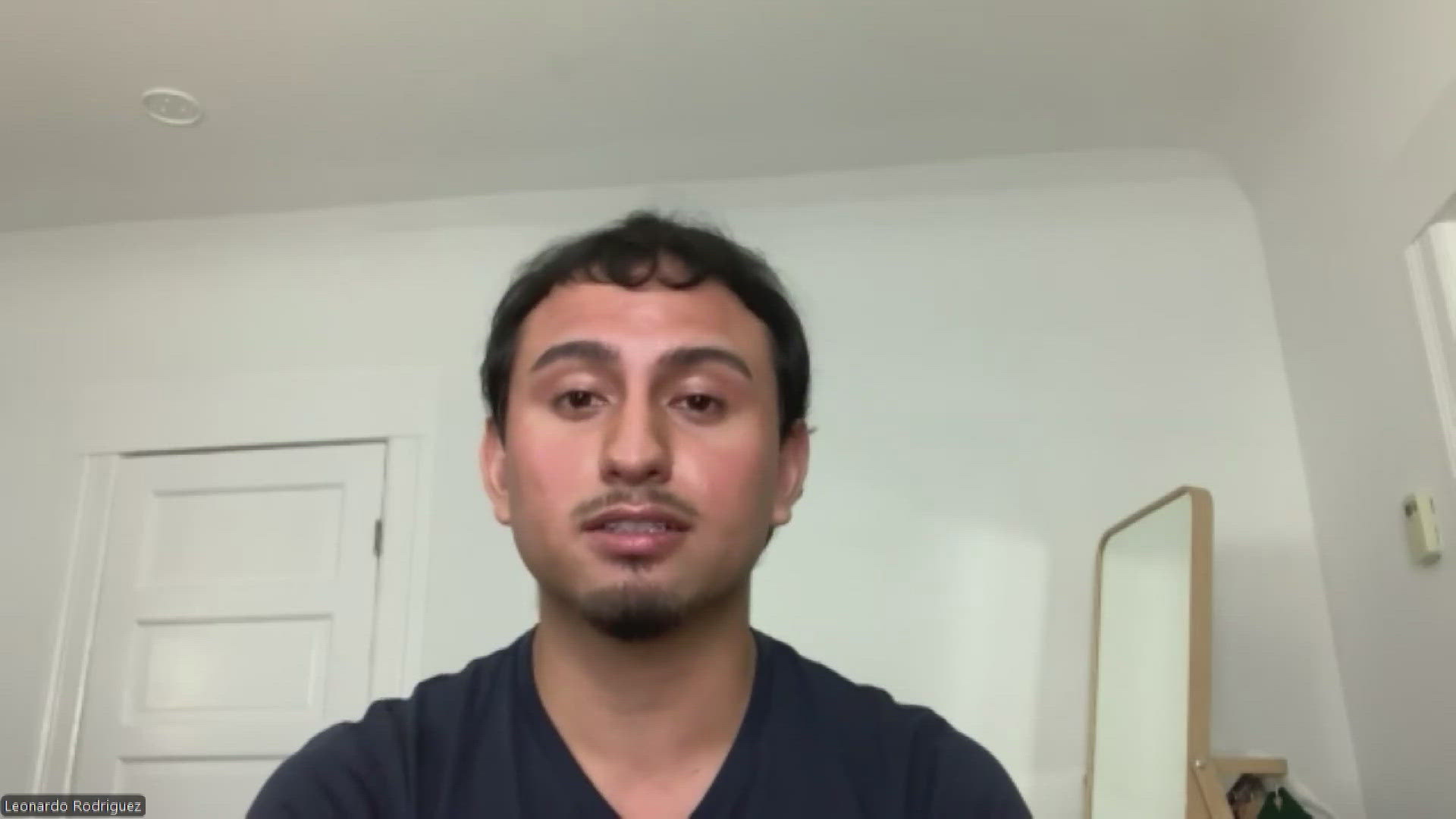SACRAMENTO, Calif. — Over the weekend, Governor Gavin Newsom vetoed AB 2586, a bill that would allow undocumented students to work at state colleges and universities in California.
Under the bill, UCs, CSUs and California community colleges would not have been able to disqualify a student from being hired if they couldn't provide proof of federal work authorization.
The decision came as a disappointment for Leonardo Rodriguez, an undocumented student at UC Berkeley.
"It is very frustrating," he said.
Rodriguez, the Undocumented Student-led Network and advocates have been fighting for the bill's passage.
Rodriguez came to California from Mexico when he was five years old. While DACA allows him to work in the United States, the future is uncertain and opportunities for students without DACA are limited.
"This bill really represents stability for my life and my future. Any day now, DACA can be rescinded by the Supreme Court, and with that, my dreams of going to law school, my dreams of being a contributing member to California and to this nation and ultimately to be able to get a job that allows me to provide for my family," Rodriguez said.
In a social media post, the bill's author, Assemblymember David Alvarez, called Newsom's decision to veto the bill "a profound disappointment." He added that "students who are legally allowed to study at California’s public colleges and universities should also be allowed to work to pay for their own education."
In his veto message, Governor Newsom said, in part, "while I am proud of these efforts, I am unfortunately unable to sign this legislation at this time."
"Given the gravity of the potential consequences of this bill, which include potential criminal and civil liability for state employees, it is critical that the courts address the legality of such a policy and the novel legal theory behind this legislation before proceeding," Newsom added.
ABC10 asked Blake Nordahl, a clinical professor at McGeorge School of Law, to weigh in.
"There's a 1986 federal statute that generally prohibits employers from hiring unauthorized employees, and so, the question is who does that law apply to? And generally, we've thought it applies to everyone. The law itself states it applies to persons and entities," he said.
But Professor Nordahl said it doesn't explicitly specify the state as an included entity, which could allow for the bill to move forward, but he said the federal consequences to immigrants are unknown.
For example, the recreational marijuana law, while its legal in some states, it's still a federal offense for non-citizens.
"Would that be considered unauthorized employment by the federal government, even though it was interpreted by the state not to be unauthorized, so that issue needs to be addressed," Nordahl said.
In a statement to ABC10, California State University said they are "deeply committed to ensuring undocumented students have the resources and support they need to fulfill their academic pursuits, and we remain strong advocates for their rights and access to higher education."
"AB 2586 shone a bright light on the inconsistencies of state and federal immigration policies and employment laws. The CSU looks forward to working closely with legislators at the state and federal level to find solutions to this critical matter that directly impacts so many of our students," CSU added.
WATCH ALSO:



















